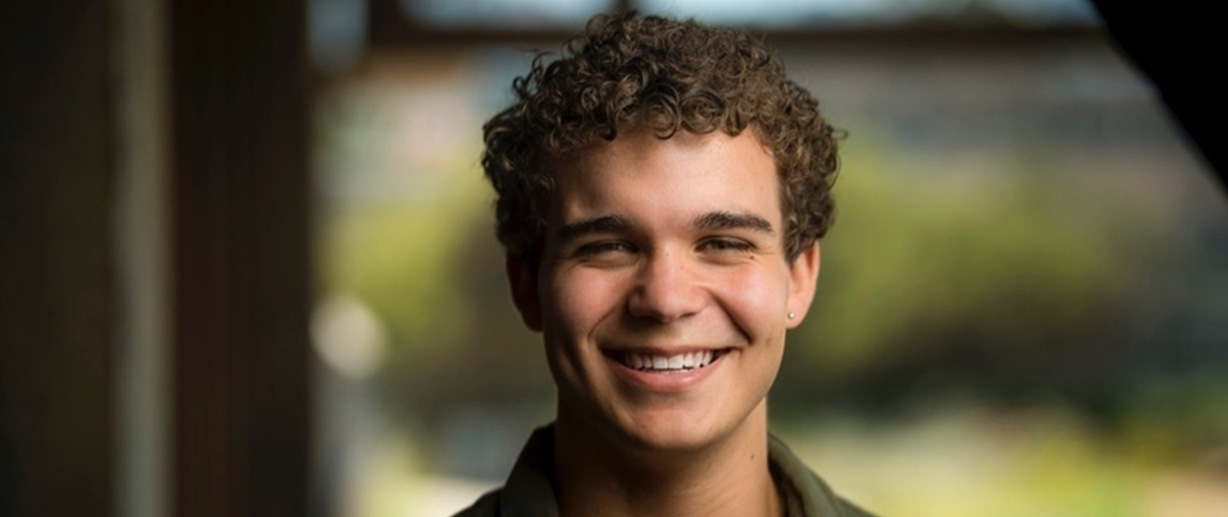Brandi Wylie ’24, student intern
Nicholas Jacobs ’23 knows it can be difficult to find internships. Sometimes, students don’t land their first choice. Then, there are times when opportunities just don’t seem to exist in their field of interest.
Jacobs, however, is proof an exact match can be found through willpower and networking.
“I just want to encourage future students applying for internships not to give up if they don’t get accepted at first,” Jacobs says. “Make those connections and reach out to people about making your own project.”
Jacobs, an environmental studies and computer science double major from Florence, South Carolina, did just that. He was able to combine both of his majors and interests to create an internship that helps to explore exactly what he desired.
Through his Wofford advisor, Dr. Jen Bradham, assistant professor of environmental studies, he was introduced to Dr. Allan Strand, professor of biology at the College of Charleston. Jacobs and Strand brainstormed a research project and got to work.
He is currently participating in a summer internship at the Grice Marine Lab, which is part of the marine biology department at the College of Charleston.
Jacobs’ project is to code predictive modeling software that will hold archival information of previous environmental trends. Current and future generations will be able to use and improve upon this information.
“This database will be able to predict how forest range will change and how species composition within that forest range will change as well,” Jacobs says.
Part of accomplishing this is trial and error, inputting historical trends and seeing if the software can accurately say what happened.
“I get to spend time in the labs, which I know will help me in the future because I hope to have a career in ecology,” Jacobs says.
Jacobs hopes to see the project through to completion. It has taken over a year to plan, and he says it will likely take another year to complete.
His advisor, however, has no doubt that he will excel in this project and much more due to his work ethic.
“Much of what he has accomplished is due to his tenacity and general excitement about ecology,” Bradham says. “He's getting valuable hands-on research experience tied directly to what he wants to study in grad school.”
